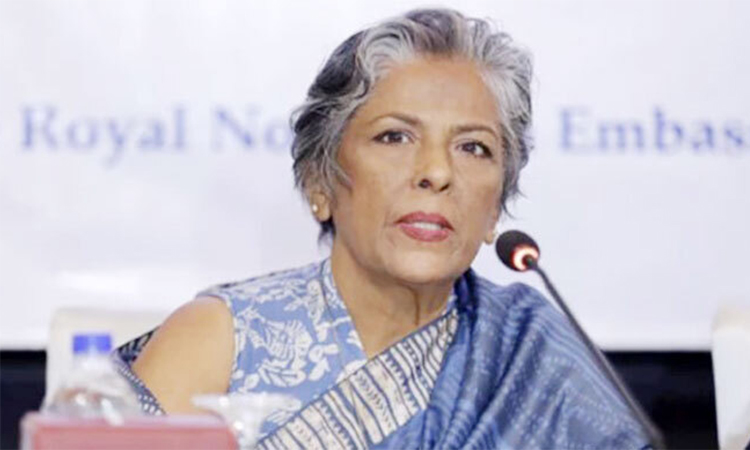News Flash
News Flash

DHAKA, Sept 24, 2025 (BSS) - Women and Children Affairs Adviser Sharmeen S
Murshid has highlighted the government's four-point agenda for women's
empowerment at the UN Women's Conference, emphasising security, recognition,
equality, and accountability as the pillars to achieve meaningful and lasting
change.
To this end, she said that Bangladesh is proud to announce the four-point
agenda for 2025-2030 aimed at ensuring genuine progress for women.
Bangladesh's delegation, led by Sharmeen S Murshid, participated in the
meeting held on September 22 at the United Nations Headquarters to mark the
30th anniversary of the Fourth World Conference on Women at the UN
headquarters, said a ministry press release here today.
She said Bangladesh government will enact a Sexual Harassment Prevention
Ordinance by 2025 to build a safe Bangladesh for women and children, ensuring
services are made accessible nationwide in the shortest possible time.
To recognise women's unpaid work, she said, a Household Production Satellite
Account will be established by 2027 to value service work, which constitutes
18.9 percent of GDP, most of which is contributed by women.
She also stressed that political parties will ensure at least 33 percent
women candidates in national elections to secure equal representation at the
power table.
In addition, gender-responsive budgeting will be expanded across all
government institutions with a focus on results to promote equity-based
accountability in financing, she added.
The adviser, in her speech, said that while progress has been seen in
conflict-prone areas, climate resilience, and women's economic participation,
in many other cases setbacks remain.
The problem, she noted, is not perspective but uneven national advancement.
"We must move forward with heartfelt commitment to genuinely build a caring
and inclusive society," Sharmeen added.
Highlighting Bangladesh's progress, she said the country has made strides in
eliminating gender disparity in education, institutionalising gender-
responsive budgeting, improving maternal health, increasing women's
participation in the labor market, and achieving the highest political
empowerment score in South Asia.
Sharmeen S Murshid said that the care economy plays a vital role in enhancing
women's economic empowerment and in fostering international cooperation in
the labour market.
Expressing optimism, she added that a well-planned economy not only addresses
critical social needs but also serves as a driving force for employment
generation both domestically and internationally.
She said a key priority for Bangladesh is to develop the capabilities of
young people through proper training and to ensure employment in line with
their skills.
She emphasised that widespread promotion of the care sector is essential for
workforce development and for ensuring quality services for all.
The Adviser highlighted Bangladesh's experience in advancing transformative
service delivery, demonstrating how the Ministry of Women and Children
Affairs' dynamism translates political and socio-economic change into
effective initiatives and practical implementation.
Among others, the delegation included Joint Secretaries Firoz Uddin Khalifa
and Dilara Begum, and Deputy Secretary Tarek Mohammad Zakaria of the Ministry
of Women and Children Affairs.